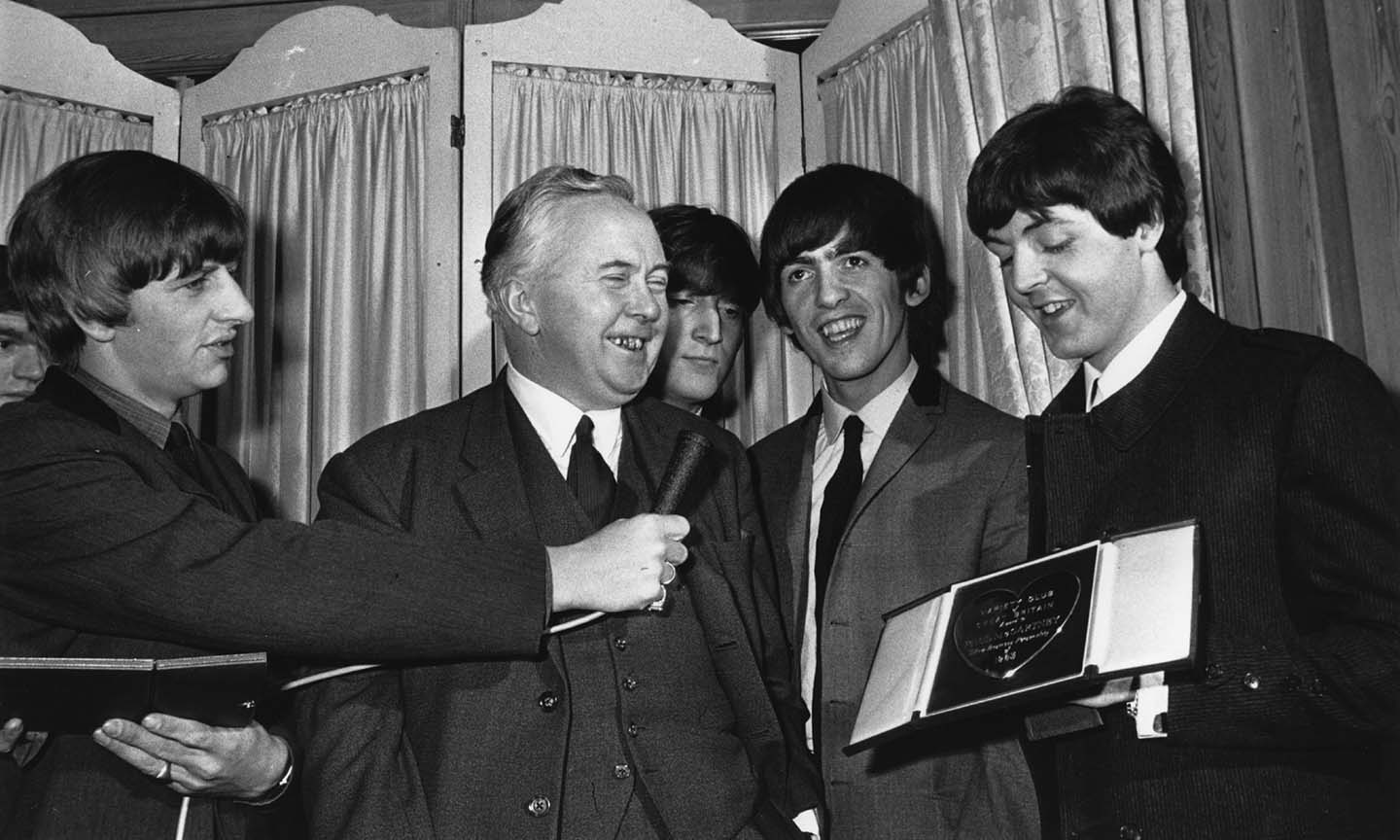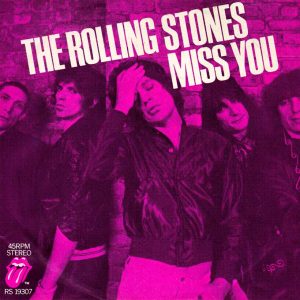How do you know you’re a successful group in the UK? It isn’t necessarily down to the number of screaming fans, chart-topping hits, or even the gold records adorning your walls. You know you’ve really made it when you receive a heart-stoppingly hefty tax bill from the Inland Revenue.
The Beatles were one of the first pop groups to conquer the world and, by April 1966, when the Fab Four started recording what was to be Revolver, they were likely the richest musicians in the UK.
Listen to “Taxman” as part of The Beatles’ Revolver: Special Edition.
The previous month, a socialist Labour government led by Harold Wilson was re-elected with a landslide majority in the UK and immediately upped tax rates for the country’s highest earners. It was a move that profoundly affected The Beatles. That it was instigated by a prime minister who only a year previously had been instrumental in awarding the four Beatles MBEs – for their services to entertainment as well as helping bolster the British economy – came with a bittersweet irony.
In the UK’s currency of the time, there were 20 shillings in a pound; and under the Labour government, The Beatles began paying the top tax rate, which meant that for every pound they earned, 90% of it – 19 shillings and six-pence to be exact – would be taken by the government.
George Harrison was more interested in the group’s business affairs at that point than the other Beatles, and was alarmed to learn that the fruits of their labors were being taken; a situation that might even lead to the group’s bankruptcy. He was also concerned that the government would use the money to fund the manufacture of weapons. As a direct consequence, he vented his frustration by writing “Taxman,” which had the distinction of being The Beatles’ first protest song. (Although the song was credited to Harrison alone, he did have a little assistance: “George wrote it, and I helped him with it,” John Lennon revealed in 1968, later adding that “I threw in a few one-liners to help the song along because that’s what he asked for.”)
Although Harrison mentions prime minister Harold Wilson by name, to achieve political balance, he also namechecks the Conservative opposition leader Edward Heath. The song’s tone is acerbic – Paul McCartney once described it as “George’s righteous indignation” – and it’s conceivable a punk band or two may have found inspiration in its attitude. (The Jam’s 1980 single “Start,” for one, owes a huge debt to “Taxman.”)
Opening with Paul McCartney’s spoken count-in, “Taxman” is hard and funky, infused with elements of American R&B and, in particular, faint echoes of James Brown’s “I Got You (I Feel Good).” It was built using a simple blues structure and propelled by McCartney’s rubbery, Motown bassline in tandem with jagged off-beat guitar chords. What made the song really unique was its short but ferocious Indian-tinged lead guitar solo – placed in the middle of the song and also repeated on the fade-out – which was overdubbed by McCartney.
The Beatles spent three days in Abbey Road studios with producer George Martin finessing “Taxman”; far longer than the time they spent recording their 1963 debut album Please Please Me, which was largely laid down in its entirety during a single day.
“Taxman” had the distinction of being the first – and, as it turned out, only – Harrison song to open a Beatles LP. It was one of three tunes by him on Revolver, reflecting his growing stature in the band as well as his growth as a songwriter.
Sonically, “Taxman,” together with its audacious and groundbreaking parent album Revolver, opened a new chapter, both for The Beatles and pop music in general. What came next was a more progressive approach to music-making, all propelled by the growing influence of psychedelia and the counterculture movement. This song helped shape rock music in the late 1960s and beyond… and only made The Beatles’ tax bills larger.
Listen to “Taxman” as part of The Beatles’ Revolver: Special Edition.




